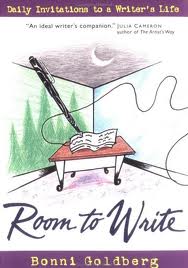Thursday Work-in-Progress: Starting a New Short Story
It has taken me a couple of months, but I think that I’m finally ready to reframe these Thursday blog posts. Instead of sharing tidbits from the post-publication phase of my story collection, Quiet Americans, I’m going to focus on new work-in-progress: fiction, poetry, book reviews, essays, and freelance assignments. Assignments, drafts, revisions, submissions, applications, and so forth. The possibilities are, as they say, limitless.
I’m still home on medical leave this week, but I’ve had somewhat more energy, and I have been able to spend some decent chunks of time reading text longer than a magazine article and writing text longer than a tweet. My main accomplishment is a completed first draft of a new short story.
This isn’t just any short story. This is my first commissioned short story, and the commission seems to have resulted from the “commissioner” having read Quiet Americans. I don’t want to say too much about the project, because I am superstitious. Until the story is out there for you to enjoy, I don’t want to give too many details.
But I will say something about the process of writing this draft. I’m convinced that part of the reason I’ve managed to complete this draft is this: I returned to a reliable resource: Bonni Goldberg’s Room to Write: Daily Invitations to a Writer’s Life.
 I wish I could tell you exactly when or where I discovered this gem of a book, who assigned it to me, etc. All I can tell you is that my copy is worn. Its cover is frayed. Its spine, long since broken. For a long while, several of the exercises became staples of my writing routine. I’d be developing a new character or new story and I’d return to certain certain tried-and-true, post-it-marked pages. Later, when I advanced from writing student to writing teacher, I assigned this book to my students as well.
I wish I could tell you exactly when or where I discovered this gem of a book, who assigned it to me, etc. All I can tell you is that my copy is worn. Its cover is frayed. Its spine, long since broken. For a long while, several of the exercises became staples of my writing routine. I’d be developing a new character or new story and I’d return to certain certain tried-and-true, post-it-marked pages. Later, when I advanced from writing student to writing teacher, I assigned this book to my students as well.
One of this book’s many beauties is its flexibility. It didn’t take me all that long to realize that the exercises could be adapted to any genre/project/idea of the moment. For example, in one of my favorites (“101”), Goldberg suggests that you “stretch your memory by making a list of ‘101 Places I’ve Been’ or “101 Ways to Dance.'” Goldberg situates this exercise as a way of “reaching out” to memory or inspiration and inviting ideas and images to emerge. I liked it so much that I began making lists of “101 Places” particular characters had been. Almost always, I learned something new about the characters in question and came up with new ideas for scenes, plot points, and/or settings.
Now, I’ll confess that this story commission has intimidated me, and there was something comforting simply about finding my worn copy of Room to Write on its shelf and leafing through its pages. But I knew what I was looking for, and I found it pretty quickly.
In an exercise titled “The Plot Thickens,” Goldberg suggests: “Today relate the same event three times, in one sentence, one paragraph, and one page. Notice how the event changes as you alter the amount of space you give it.” This exercise, too, I’ve adapted. I’ve even used it to help students with research papers: Tell me what your main idea is in one sentence, one paragraph, one page.
But in my own writing practice, I’ve found this exercise to be most helpful whenever I’m just starting to understand what is happening in a new story. I try to summarize the arc of the story as I understand it at that early point in one sentence. One paragraph. One page.
This week, that effort worked. (At least, I think it worked, and the two readers who were kind enough to give the draft a fast, initial read yesterday don’t hate it!)
How do you get started with the actual writing of a new story (or poem or essay)? Any tools or techniques to share? This inquiring mind wants to know!
I like the exercise you discussed here. I will give it a try. For me, normally a character’s voice just begins to speak to me. May sound crazy, but most writers understand what I’m talking about. I always say that it is like someone just walks up to me and starts telling me a story. I write what I hear. That’s for the first draft.
Then I put the story away for a long while. Finally, I go back and revise, revise, revise, and re-write until it doesn’t suck anymore. Or at least I hope it doesn’t suck anymore.
Kizzy, I wish I had characters speaking to me! Other writers tell me that that is their experience, too. But it just doesn’t happen for me.
May your healing go well as both your first draft and your body move toward recovery and completion. You inspired me to order the book from Amazon this evening!
Thanks, Amy! Please let me know what you think about the book once you’ve had some time with it.